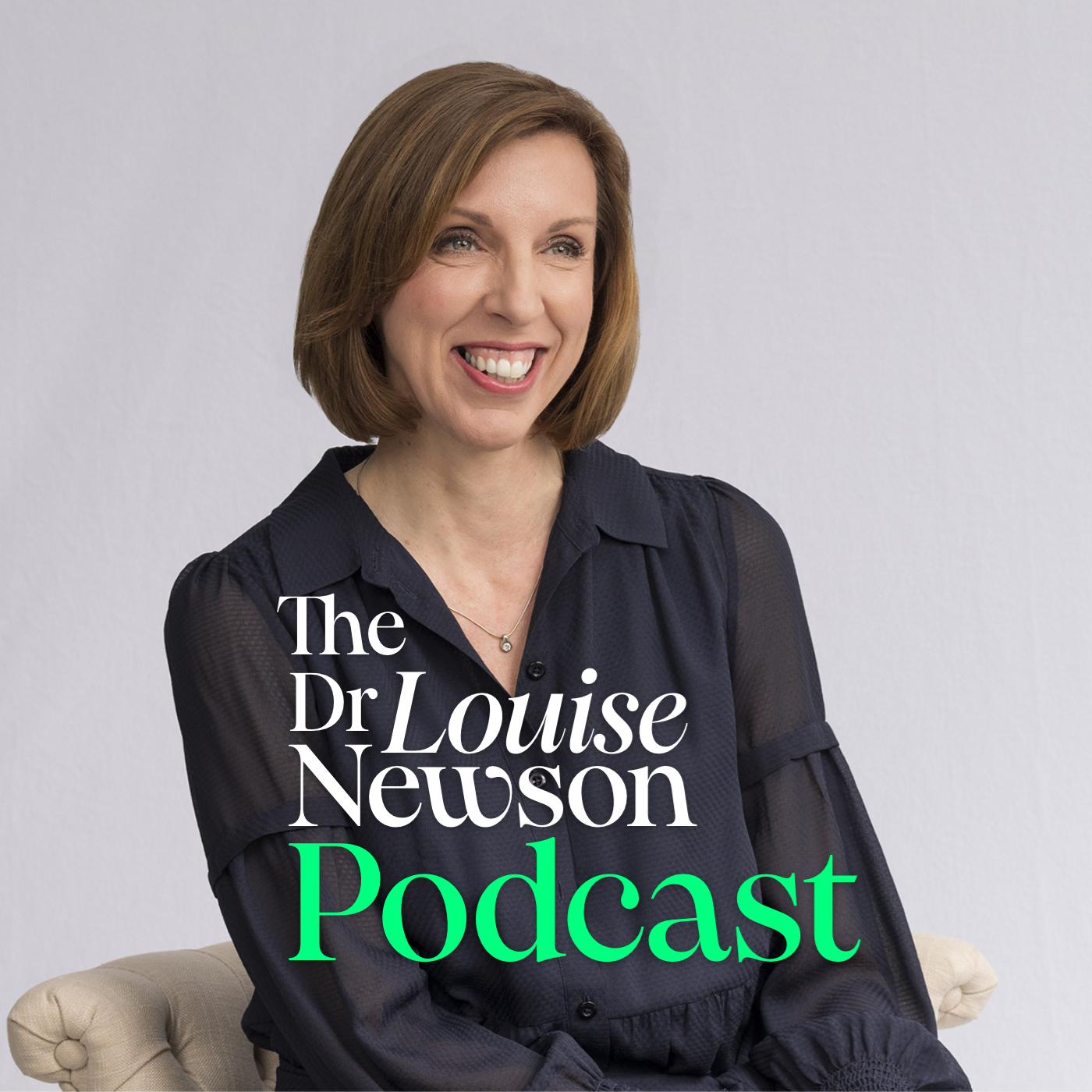
8.5M
Downloads
311
Episodes
Dr Louise Newson is an award-winning physician, respected women’s hormone specialist, educator, and author committed to increasing awareness and knowledge of perimenopause, menopause, and lifelong hormone health. Each week, Louise dives into the newest research, treatments and hot topic issues, providing accessible, evidence-based information to empower your future health. Joined by fellow experts and special guests, with answers to your burning questions, Louise explores how hormones impact every aspect of our lives. Described as the “medic who kickstarted the menopause revolution”, Louise aims to empower a generation of women to have a greater understanding, choice and control over their treatment, bodies, minds and future health through their hormones. She is the creator of the award-winning free balance app, a Sunday Times bestselling author and the founder of the Newson Health clinic. With over three decades of clinical experience, Louise is a member of the Royal College of Physicians, a Fellow of the Royal College of GPs, a Visiting Fellow at Cambridge, a regular contributor to academic journals including the Lancet and the British Journal of General Practice, and has been awarded an honorary Doctorate of Health from Bradford University. DISCLAIMER: The information provided in this podcast is for informational purposes only and is not intended as a substitute for professional medical advice, diagnosis, or treatment. Always seek the advice of your physician or other qualified health providers with any questions you may have regarding a medical condition. The views expressed by guests are their own and do not necessarily reflect the views of Dr Louise Newson or the Newson Health Group.
Episodes

Tuesday May 17, 2022
152 - Irritable bowel, bloating and digestive health with The Gut Experts
Tuesday May 17, 2022
Tuesday May 17, 2022
Consultant Gastroenterologist Professor Barbara Ryan and Clinical Dietitian Elaine McGowan are The Gut Experts, passionate about digestive health and helping women with debilitating bloating and irritable bowel symptoms.
In this episode, the experts discuss why more women are troubled by gut related symptoms compared to men, how gut and bowel problems have a very real impact on women’s lives, and why eating the right type, amount and variety of foods is so important for your gut health and overall wellbeing. The Gut Experts also talk about their new book written for women of all reproductive ages experiencing gut and bowel related symptoms.
Barbara’s tips for improving your future digestive health:
- If you’re having digestive symptoms seek a correct diagnosis rather than self-diagnosing
- Don’t look at your gut and digestive health in isolation, take a whole-body approach. Remember TEAMS: Total gut and body health, Exercise, Alcohol (reduce/cut out), Mental health, S
Elaine’s tips for improving your diet:
- Fibre is a superfood for your gut microbiome – find the right amount of fibre intake for your own gut as everyone is different
- Variety and diversity of foods is crucial, eat the rainbow, following a Mediterranean style diet.
Visit the Gut Experts website at https://thegutexperts.com/
The Gut Experts book, ‘What every woman needs to know about her gut’, contains solutions for bloating, IBS, and digestive symptoms and is out now, published by Sheldon Press.
Follow Barbara and Elaine on instagram @thegutexperts
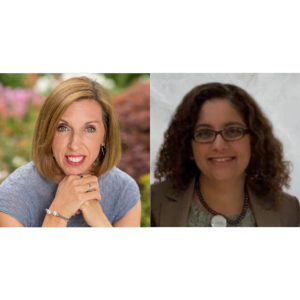
Tuesday May 10, 2022
151 - Unpicking UTIs and the role of hormones with Dr Rajvinder Khasriya
Tuesday May 10, 2022
Tuesday May 10, 2022
Dr Rajvinder Khasriya is a urogynaecologist who leads the Lower Urinary Tract Symptoms clinic at the NHS Whittington Hospital in North London, and is also involved in research work at University College London.
In this episode, the experts discuss urinary tract infections (UTIs) and the role a lack of hormones play in their occurrence and ongoing recurrence. Dr Khasriya explains how common and debilitating UTIs can be for women in the peri/menopause, why traditional methods of testing and treatment are often unsuccessful, and she outlines the benefits of using vaginal hormonal treatments as part of a holistic approach for managing UTIs.
Dr Khasriya’s tips for women with UTIs:
- As always, do your own research and find patient groups for support and information.
- Understand all the factors that can contribute to UTIs such as weight gain, your general health, your diet and stress levels, as these are also important.
- Be generous when using your vaginal estrogen, it is completely safe to use and in the long term.
- Trust yourself, you know your body best.
The patient groups:
Embedded/Chronic UTI Support Group
Do you suffer from reoccurring UTIs? Many of us have been previously incorrectly diagnosed with Interstitial Cystitis (IC) and have come to learn our condition is actually an embedded or chronic UTI...
1 in 3. women will have a UTI by the age of 24 1. 90%. of chronic urinary tract infections are missed by the standard MSU culture test 2. 70%. the risk of recurrence within a year 3.
Women asked if bladder drug should be available to buy. A pill to help treat an overactive bladder - which affects millions of women - could soon be available to buy in the UK without prescription.

Tuesday May 03, 2022
Tuesday May 03, 2022
Dr Jan Smith is a chartered psychologist, executive coach, author, campaigner and the director of Healthy You Ltd. She has over 15 years’ experience providing psychological support to those affected by injury and clinical negligence. In 2014, Jan developed a birth trauma service and campaigns to improve safety in maternity services for families and staff and provides training in the UK and internationally to maternity students and healthcare professionals on birth trauma and its impact.
In this episode, Jan describes to Dr Louise Newson how women can feel after a difficult birth or medical experience, and how trauma related emotions can resurface many years later at peri/menopause when psychological and genitourinary changes occur, often affecting relationships and intimacy.
Jan’s 3 pieces of advice:
- If you had a difficult birth or healthcare related experience that affects how you feel about your genitals and intimacy, it is never too late to get help, even if it is years down the line.
- Workplaces need to view women’s health as a continuum, not separate stand-alone events like pregnancy or menopause.
- Think about ‘reaching in’ to help other women going through it – to listen, to validate and let them know they are heard and seen. This can be hugely beneficial for everyone’s mental health.
For more about Jan and Healthy You, visit https://healthyyoultd.co.uk/
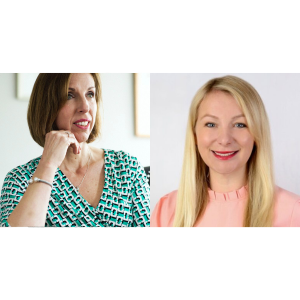
Tuesday Apr 26, 2022
Tuesday Apr 26, 2022
In this episode, Dr Louise Newson speaks to Dr Abbie Laing about why she now specialises in menopause care and what she has learnt through her research and writing on the subject. Together the experts discuss clinical hot topics where misinformation and misunderstandings are rife such as what the evidence shows about the risk of clots and breast cancer with HRT, and treating symptoms of genitourinary syndrome of menopause (GSM) with vaginal estrogen.
Abbie’s 3 tips for women with symptoms of GSM:
- Seek help early and use vaginal estrogen; persist with treatment options if the first one doesn’t suit you. The benefits are huge, and treatment should be long term.
- If you have recurrent UTIs, consider vaginal estrogen treatments .
- For elderly, frail, or very busy women, the vaginal estrogen ring (Estring) is a very effective and safe option.
- Vaginal estrogen treatments are very safe and do not have any associated risks, including for people who have had cancer.
To access the treatment pathways discussed in this episode, become an associate of the Newson Health Menopause Society at www.nhmenopausesociety.org
For more information on any of the treatments discussed, visit the balance website at www.balance-menopause.com
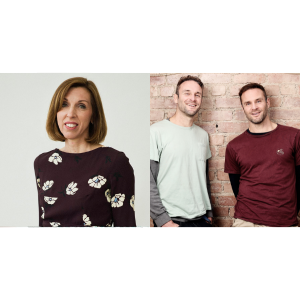
Tuesday Apr 19, 2022
148 - Plant-based living with Happy Pear’s Dave and Steve Flynn
Tuesday Apr 19, 2022
Tuesday Apr 19, 2022
In 2004, Dave and Steve Flynn started a fruit and veg shop, with the aim to create a happier, healthier world. The Happy Pear now has vegan food products in nearly 1,000 stores in Ireland, 2 cafes and a farm, and their five cookbooks have all been no.1 bestsellers. The Happy Pear online health and lifestyle courses – in which they partnered with plant-based experts from across the globe – have helped over 50,000 people from 120 different countries.
In this episode, Dr Louise Newson chats with Dave and Steve about how they came to realise in their early 20’s that eating plant-based and whole foods would transform their own lives and those in their community. The lads energetically describe the different ways in which they have helped others turn their lives around, reduce risk of heart disease, feel happier and lose weight.
Dave and Steve’s 3 tips to improve your diet and future health:
- Try to eat more whole foods, if you don’t like many vegetables, start with fruit.
- Be more intentional about your food choices
- Find your community, create an environment around you that will support you to make healthy choices.
For more information about the Happy Pear cookbooks and lifestyle courses, visit https://thehappypear.ie/
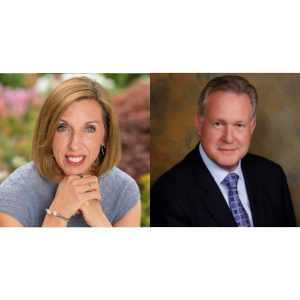
Tuesday Apr 12, 2022
147 - Changing minds about food and diets with Dr Robert Lustig
Tuesday Apr 12, 2022
Tuesday Apr 12, 2022
Dr Robert Lustig is Professor emeritus of Pediatrics at the University of California, San Francisco. He specialises in the field of neuroendocrinology and his research and clinical practice focuses on childhood obesity and diabetes. Dr Lustig has led a global discussion of metabolic health and nutrition, exposing some of the leading myths that underlie the current problem of diet-related disease. He is the author of several books including the books Fat Chance and Metabolical: The truth about processed food and how it poisons people and the planet.
In this episode, Dr Lustig talks to Dr Louise Newson about the influence of sugar, fats, and processed foods on our brains and health, changing minds of the public and health professionals and challenging the food industry. And – just as with changing public perception of HRT – challenging misconceptions about sugar and processed food starts with education.
Dr Lustig’s 3 tips to improve your diet:
- Yoghurt is good but make sure it doesn’t have any added sugar
- Juice is not healthy. Fruit is healthy and has fibre which is the good part. It’s food for your microbiome.
- Trans fats are not good for you at all, try and avoid them at all costs including watching what oils you cook with.
Dr Lustig’s website is https://robertlustig.com/ and you can find out more about all his books here.
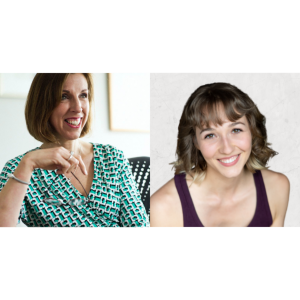
Tuesday Apr 05, 2022
146 - Helping others feel less alone with POI with Ava Vanderstarren
Tuesday Apr 05, 2022
Tuesday Apr 05, 2022
Ava Vanderstarren is a performing artist, actor and public speaker. She is the co-author of Blossom Living With Premature Ovarian Insufficiency / Early Menopause Journal and is the co-founder of the charity Innocence Lost Foundation. She has over 10 years lived experience of POI & mental health maintenance.
In this episode, Ava discusses her experiences of her POI diagnosis when she was 17 and how confused and isolated she felt at the time. Ava has co-authored a supportive journal for young people to help readers through diagnosis of POI or early menopause and to provide clear information and help them feel less alone.
Ava’s 3 tips:
- Advocate for yourself, even though its frustrating and exhausting
- Remember self-care and your own health come first
- Don’t underestimate the impact of hormones on your physical and mental health
For more about the Blossom Living with POI / EM Journal: https://amzn.to/3HZx4Cr
Connect with Ava on social media:
Instagram & TikTok: @avavanderstarren
Twitter: @AVAnderstarren
YouTube & Facebook: Ava Vanderstarren
Ava’s professional website: http://www.avavanderstarren.com/
Ava’s charity working with child soldiers in Sierra Leone https://innocencelostfoundation.com/
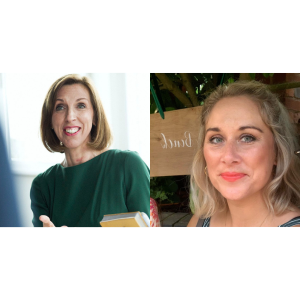
Tuesday Mar 29, 2022
Tuesday Mar 29, 2022
Vicki is 39 years and has struggled with heavy periods and related pain since she was 10 years old. She was eventually diagnosed with endometriosis at 22 but continued to suffer with severe pain, heavy bleeding and UTIs, despite treatments and multiple surgical interventions. As a last attempt to be pain free, Vicki chose to have a hysterectomy when she was 35. Even though her ovaries were not removed, she realised she was entering menopause after the operation when she began having night sweats, insomnia, anxiety and very dry hair and skin. The ‘cure’ Vicki was hoping for didn’t materialise – another battle just began instead, as it took 18 months to access the treatment she now needed for her menopause.
Vicki shares some of the struggles younger women have when trying to get help for endometriosis and/or a surgical or early menopause, and reflects on the decision she made and the lack of information provided to her at the time. Dr Louise Newson advises women in this situation to speak with their doctor about the likelihood of surgery triggering menopause and to find out about the symptoms and benefits of HRT in advance, so you are prepared.
Vicki’s tips if you have, or think you have, endometriosis:
- Do your own research and be your own advocate, push for answers
- Keep pushing your GP, make them listen to you, show them your pain diary and take someone with you who sees you when you have pain
- Learn as much as you can about endometriosis; treatments are not just surgical, there’s exercise, diet, physiotherapy, and others
- Understand that hysterectomy isn’t a cure for endometriosis but if it is the right decision for you, learn about the menopause and benefits of HRT in advance.
You can read more about Vicki’s experience here and follow her on Instagram
Vicki helped contribute to the booklet, ‘Endometriosis and You’
For more about endometriosis, visit Endometriosis UK

Tuesday Mar 22, 2022
144 - ZOE’s co-founder, Jonathan Wolf, on the future of nutrition science
Tuesday Mar 22, 2022
Tuesday Mar 22, 2022
Jonathan Wolf is the CEO and co-founder of ZOE, a health technology company that focusses on personalised nutrition. ZOE runs the world’s largest nutrition science study with universities such as Harvard and King's College London, investigating the gut microbiome and how nutrition can improve overall health and wellbeing. During the COVID pandemic, their valuable technology was utilised to help scientists understand more about the virus. The COVID-19 symptom study app was designed at record speed and had a million users within 24 hours of launch.
Dr Louise Newson speaks with Jonathan about the latest understanding of how the gut microbiome affects our health and weight, how much our genes our to blame (or thank) for our body shape, and about ZOE’s latest study into the menopause and metabolic responses, nutrition and the microbiome.
For more information on ZOE’s research and products, visit https://joinzoe.com/
The podcast mentioned and hosted by Jonathan is ‘ZOE Science and Nutrition’.
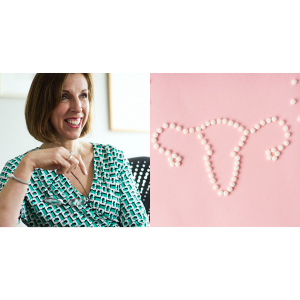
Tuesday Mar 15, 2022
143 - Fertility, pregnancy and perimenopause with Rhona and Tanya
Tuesday Mar 15, 2022
Tuesday Mar 15, 2022
In this episode, Dr Louise Newson is joined by two women, Rhona and Tanya, who share their experiences of fertility support, pregnancy, and having symptoms of low hormones after the birth of their children.
Rhona asked the fertility specialists whether the hormone treatments she was taking to become pregnant would affect the onset of her menopause and she was told that it wouldn’t. 18 months after giving birth while still breastfeeding, Rhona experienced severe symptoms due to low hormones and spent 2 years suffering and seeking help before a friend suggested it could be her perimenopause. After seeing a menopause specialist and finding real improvements with HRT, Rhona wants other women to be aware that problems after childbirth might not simply be ‘baby blues’ but could be the start of perimenopause.
Tanya also had a child with the help of fertility treatments in her 40s, and during screening tests it revealed that indications of perimenopause had begun. The IVF was successful, but after the birth of her baby and a relocation, Tanya’s mood plummeted and she experienced a range of symptoms caused by low hormones. Her GP offered antidepressants, but Tanya didn’t think it was postnatal depression and knew her hormones were involved. Tanya is now pregnant again and is apprehensive about what will happen due to low hormones after her next birth.
Louise explains what is – and isn’t – known about hormones during pregnancy and in the postnatal period, and why this can affect women so much in the months and years after birth. She describes the benefits of topping up those hormones with HRT and the multiple improvements it could bring to women at this challenging time.
Rhona and Tanya’s advice for women thinking about pregnancy and perimenopause:
- do you own research and seek medical help if you have perimenopausal symptoms
- don’t be scared to try IVF, but know the possible effects of low hormones after birth, especially if you’re in your 40s
- be aware of what your own body is telling you before you start fertility treatments, are there signs you could be in perimenopause?
- If you choose to do extended breastfeeding, know that your hormones will be low and this may cause symptoms
For more information on breastfeeding and HRT, postnatal depression and another personal account relating to post-pregnancy hormones:
https://www.balance-menopause.com/menopause-library/breastfeeding-hrt/
https://balance-menopause.com/uploads/2022/02/What-is-reproductive-depressionfinal-with-links.pdf
